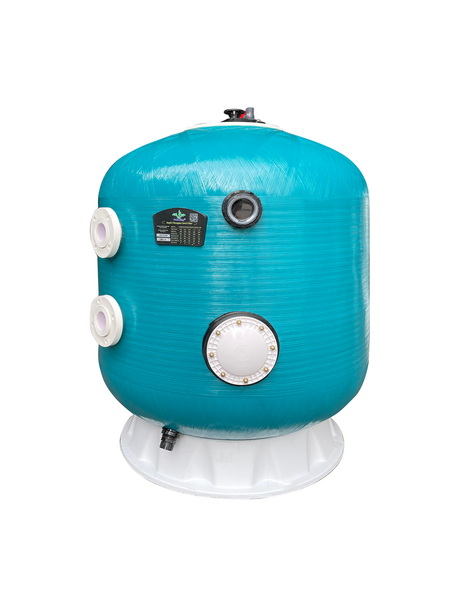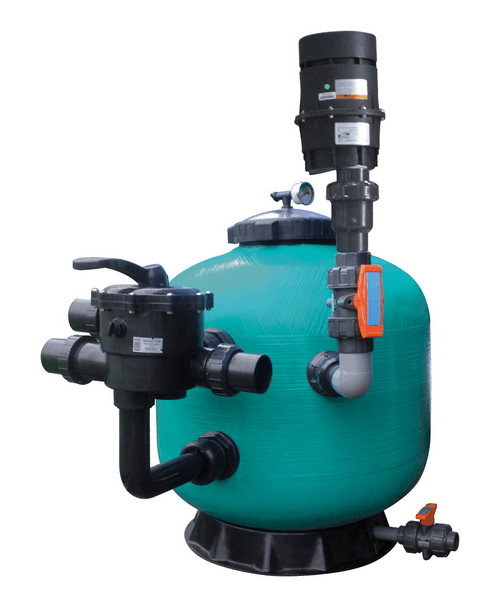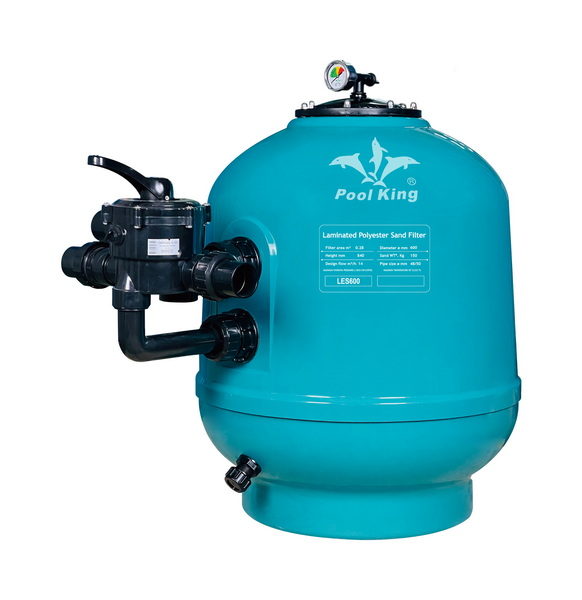Views: 222 Author: Tina Publish Time: 2025-08-09 Origin: Site








Content Menu
>> 2. Cartridge Filter Systems
>> 3. Diatomaceous Earth (DE) Filter Systems
● Additional Filter Technologies and Innovations
● Choosing the Right Filter System for Your Pool
● Benefits of Advanced Pool Filtering with Smart Production
● Frequently Asked Questions (FAQs)
>> 1. Which pool filter system requires the least maintenance?
>> 2. How often should I clean or replace the filtration media?
>> 3. Can DE filters be used in saltwater pools?
>> 4. Which filter is best for pools prone to algae or cloudiness?
>> 5. Are there any health concerns using DE filters?
Maintaining a clean and clear pool is essential for a healthy and enjoyable swimming experience. One of the most critical components of pool maintenance is choosing the best pool filter system. There are various types of pool filters available in the market today, each with unique technology, benefits, and drawbacks. This comprehensive article will explore the three main types of pool filter systems—sand filters, cartridge filters, and diatomaceous earth (DE) filters—and provide insights into their functionality, efficiency, maintenance, and suitability for different pool types. Additionally, we will discuss smart production benefits, compare the filters in detail, and guide you in selecting the right system for your needs.

Sand filters are one of the oldest and most widely used pool filtration systems globally. The mechanism is simple and reliable: pool water passes through a bed of specially graded sand, which traps dirt and debris, then returns clean water to the pool.
Key Features:
- Cost-Effective: Sand filters typically have the lowest upfront cost and are very popular for residential pools.
- Maintenance: Cleaning is performed through backwashing, which reverses water flow to flush out debris trapped in the sand.
- Filter Efficiency: Effectively filters particles in the range of 20 to 40 microns.
- Durability: Sand usually needs to be replaced every 5 to 8 years, making them cost-effective over time.
- Best For: Small pools with minimal debris, ideal for environments with less foliage or dust.
Advantages:
- Easy operation and minimal routine maintenance.
- Durable filter media with low replacement frequency.
- Well suited for everyday debris filtration in typical backyard pools.
Disadvantages:
- Less efficient in filtering fine particles compared to other filter types.
- Can take longer to resolve cloudy or algae-filled water issues.
- The sand bed can channel over time and reduce filtration efficiency before the next sand replacement.
Cartridge filters use a pleated fabric cartridge housed inside a tank to trap particles as water flows through. Their function resembles automotive air or oil filters but designed for pool water filtration.
Key Features:
- Filter Efficiency: Capable of filtering down to 10 to 15 microns, capturing finer particles than sand filters.
- Maintenance: Cartridges require periodic removal for cleaning or rinsing and should be replaced every 2 to 4 years depending on use.
- Water Chemistry Impact: Least influence on pool chemistry among the three filters since no backwashing is required.
- Best For: Spas, above-ground pools, and small to medium in-ground pools.
Advantages:
- Superior filtration improves water clarity and reduces chemical use.
- Simple cleaning process without the need for backwashing conserves water.
- Often more energy-efficient, reducing pump strain.
Disadvantages:
- Higher initial and operational costs due to cartridge replacement needs.
- Principal vulnerability to damage from oils, lotions, and chemical exposure.
- Less effective for pools with very large debris or excessive algae blooms.
DE filters represent the highest filtration standards, using fossilized remains of diatoms to filter water.
Key Features:
- Filter Efficiency: Filters particles down to 4 to 5 microns, the finest filtration available.
- Maintenance: Requires frequent backwashing combined with replenishing DE powder.
- Durability: Filter grids must be cleaned regularly and replaced every 2 to 3 years.
- Best For: Large size pools, commercial facilities, and pools that demand crystal-clear water year-round.
Advantages:
- Unmatched water clarity due to ultra-fine particulate capture.
- Effective in fighting algae and sludge, keeping pool water pristine.
- Compact setup suited for various pool configurations.
Disadvantages:
- Highest upfront and maintenance costs.
- Handling DE powder requires care and outdoor or ventilated installation due to potential respiratory irritation.
- Maintenance is more labor-intensive compared to other filter types.
- Sand filters function by passing water through a thick bed of sand grains where contaminants are trapped between sand particles.
- Cartridge filters rely on pleated fabric cartridges to physically capture dirt particles on their surfaces.
- DE filters coat internal grids with DE powder, which acts as a fine layer of filtration media trapping microscopic debris before water returns to the pool.
While sand, cartridge, and DE filters dominate the market, advancements in technology continue to enhance pool filtration systems:
- Multi-media Filters: Combining sand, anthracite, and garnet layers to improve filtration beyond standard sand filters by trapping particles of varying sizes.
- Smart Filters with Sensors: Some modern filters integrate sensors that monitor flow rate, pressure changes, and water clarity, alerting pool owners when maintenance is needed.
- Energy Efficient Pumps: Machines matched with filters can optimize filtration cycles while reducing energy consumption.
- Self-Cleaning Features: Some cartridge and DE filters come with automated cleaning mechanisms to reduce manual labor.
These innovations contribute to better pool hygiene, water conservation, and ease of maintenance.

Choosing a pool filter system depends on several key factors that affect performance and maintenance expectations:
| Criteria | Sand Filter | Cartridge Filter | DE Filter |
|---|---|---|---|
| Initial Cost | Lowest | Moderate | Highest |
| Maintenance | Backwashing; sand change every 5-8 years | Cartridge cleaning/replacement every 2-4 years | Backwashing; new DE powder regularly |
| Filtration Level | 20-40 microns | 10-15 microns | 4-5 microns |
| Energy Use | Moderate | High efficiency | Moderate |
| Water Clarity | Good for general debris | Better for finer particles | Best for crystal-clear water |
| Suitability | Small to medium pools | Small to medium | Medium to large, commercial pools |
| Water Conservation | Uses more water due to backwashing | Saves water; no backwashing | Uses water in backwashing |
| Maintenance Time | Less frequent but longer procedure | More frequent but easier | Frequent and detailed |
By considering your pool size, environment (trees, dust, algae risk), usage frequency, and budget, you can select a filter that maximizes water clarity while minimizing maintenance headaches.
Modern pool filters are produced using cutting-edge manufacturing technology with intelligent machines that increase precision, consistency, and product quality. These benefits include:
- Better Seal Integrity: Reduces leaks and improves operational efficiency.
- Durability Improvements: High-quality materials extend filter lifespan.
- Optimized Flow Designs: Enhances water movement, improving filtration rate and energy savings.
- OEM Customization: Allows brands and wholesalers to offer unique features tailored to target markets.
Such advances enable factories specializing in top-tier sand filters, DE filters, and cartridge filters to support international clients with OEM services, providing reliable and innovative filtration solutions that meet the stringent demands of modern pools.
The best pool filter system depends heavily on your pool size, usage level, budget, and clarity requirements:
- Sand filters are budget-friendly, low-maintenance options best suited for small pools with basic debris filtration needs.
- Cartridge filters offer enhanced filtration quality with moderate upkeep, making them suitable for above-ground and medium-sized pools aiming for better water clarity.
- DE filters provide the highest water clarity by filtering the finest particles, ideally used in large residential, commercial, or high-use pools despite their higher cost and more intensive maintenance routine.
Investing in the right filter system not only ensures sparkling clean water but also saves operational costs and time in the long run, guaranteeing an enjoyable swimming environment year-round.

Cartridge filters generally require the least maintenance since they do not involve backwashing. Regular cleaning and occasional cartridge replacement suffice.
- Sand filters: Sand replacement every 5-8 years, with backwashing monthly or as needed.
- Cartridge filters: Clean cartridges monthly or biweekly, replace every 2-4 years.
- DE filters: Backwash approximately monthly or as pressure builds, replace DE powder each time, and replace grids every 2-3 years.
Yes, many DE filters are compatible with saltwater pools and effectively filter saltwater contaminants.
DE filters are superior for quickly clearing algae and cloudiness due to their ultra-fine filtration capability.
Proper handling and ventilation during DE powder application are important as inhaling the powder can cause respiratory irritation.
content is empty!
